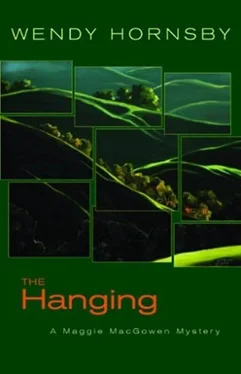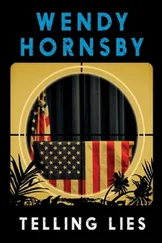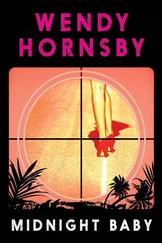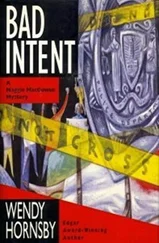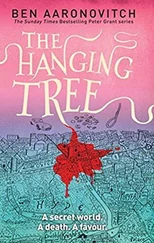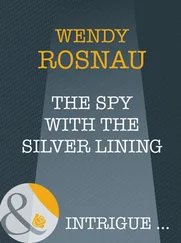Thornbury shifted his gaze from me to Max, trying to read us. “What’s up?”
“Detective,” Max said, “I take it that, because you are enjoying a cocktail and you folks don’t drink on duty, you are off the clock at the moment, just unwinding with friends.”
“If you say so, Counselor.”
“My niece wants to tell you a story. After she finishes, if you do what I think you will, you and I might end up on opposite sides of things.”
“Why is that?”
The waiter set a massive, bleeding steak in front of Thornbury. He closed his eyes and hungrily savored the aroma rising from the plate.
“You eat,” I said. “I’ll talk.”
“Deal,” he said, picking up his knife and fork.
I started at the beginning with Sly’s rant, our confrontational meeting with Holloway, Hiram’s question for me at Mme Olivier’s reception about the way Holloway died, the visit to the Snow Gallery and Frankie’s studio with the damaged gate, Preston Nguyen’s snooping and the hang-up phone calls from Frankie’s female acquaintance, my trip to Gilstrap and conversations with Karen and Trey Holloway, my encounter with Harlan, the research by Jean-Paul’s friend Gilbert and the phone calls that led the FBI to Clarice Snow. One piece at a time, like a giant puzzle, a picture began to emerge.
Before I got to the end, Thornbury had rested his knife and fork across the center of his plate and leaned back, contented, listening, occasionally asking a question.
“Laid out like that,” he said, when I told him I thought that Frankie killed Holloway, “I can see it. But how am I going to prove it?”
Max excused himself and walked up to the front of the restaurant to talk with the mâitre d’, an old friend.
“Where’s he going?” Thornbury asked.
“He doesn’t want to hear this,” I said. “Not with you present.”
“Why?”
“Because I asked him to defend Frankie.”
“Defend him?” He watched Max’s back, head shaking. “I don’t get you people. The guy takes a couple of shots at you and your fancy boyfriend, and you want your uncle to defend him?”
“For murdering his father, yes.”
“You setting him up or something?”
“Not at all. The young man needs some heavy-duty help.”
“Your uncle is that, for sure,” he said. “You think Max can get him off?”
“Not if you do your job,” I said. “Frankie Weidermeyer is a dangerous young man who has committed several despicable acts. He needs the sort of help he won’t get in prison, but at the same time, society doesn’t need him out on the loose.”
“Now I really don’t get it.”
“Detective, you have a difficult job, crazy hours, lots of stress. Do you have family, friends who look over your shoulder, make sure you’re okay?”
He thought about it before he said, “Friends, guys on the job, sure. Two ex-wives, four kids.”
“Two kids per?”
“No. All my kids are from my first marriage.” He had a sad smile. “It was a good marriage, but the job… What you said, it’s hard on people.”
“I know,” I said. “I was married to a cop.”
“The thing of it is, I think that if we could have held it together a while longer, we’d still be okay.”
“The important thing is, you have people to turn to.”
He cocked his head to the side as he looked at me.
“Not like you,” he said. “I never see you alone. You hear a little thunder and they’re on the phone, looking after you.”
“I had a rough year,” I said. “And the last week hasn’t exactly been a picnic. My family and friends are sticking close, making sure I’m okay. Sometimes I feel smothered by them, but most of all I feel loved. It’s been important.”
“I get that. But what does it have to do with Weidermeyer and your uncle?”
“It’s time for someone to step forward and help Frankie,” I said. “He has no one except his mother, and I’m not persuaded that she has much to offer that’s useful to him right now. If she did, maybe none of this…”
He nodded slowly. “Much as I’m not going to like going up against your uncle in court again, I get it. But I still don’t have any hard evidence.”
“You will. What he did was an act of rage. I’m sure he didn’t plan it, so he’ll have left something behind.”
I told him about Frankie’s workshop in Santa Barbara and the adjoining warehouse, and about Eric, Frankie’s friend, if that’s what he was.
“Eric may have something interesting to tell you. You might ask about the warehouse driveway gate that was rammed Friday night.”
“What about the gate?”
“The gate is set far enough down the driveway that it’s not likely that some random drunk hit it. I’d look into it, check Frankie’s car for front-end damage.”
“Why would he do that?”
I shrugged. “Rage, grief, self-destructiveness. Eric said he had to get the gate repaired ASAP or there would be hell to pay. There’s not much in the young men’s studio that needs more security than a good lock on the door, but I wonder if you might find some of his mom’s bogus artwork stored in the warehouse. Not to mention tools that might inflict blunt force trauma if used in certain ways.”
“You think I’ll find what the D.A. needs to file a case there?”
“You’ll find it somewhere,” I said. “I have faith in you.”
He had the grace to laugh.
* * *
My faith in Thornbury was not misplaced. During the next week, he and Weber assembled the evidence the district attorney needed to file murder charges against Frankie Weidermeyer.
Frankie had never been fingerprinted until the night he was arrested at my house. The exemplars taken during his booking matched prints found in Park Holloway’s office and on the wall of the stairwell in the lobby around the broken door covering the switch that operated the hanging apparatus.
With the help of police in Santa Barbara, Frankie’s car, an SUV, was found in a body shop where it was having its front end repaired. Inside the car technicians found traces of Holloway’s blood on the steering wheel and gearshift knob. And in a corner of the car’s back deck, under a welder’s apron, a heavy glass paperweight that had once sat on the reception desk in the lobby was found. The paperweight was smeared with bloody fingerprints-Holloway’s blood, Frankie’s fingerprints.
As part of the booking process, Frankie also had his cheek swabbed for a DNA sample. That sample linked him to DNA left on the garrote taken from Holloway’s neck and it proved paternity; Frankie was, indeed, Holloway’s son.
Whatever information I gleaned came entirely from Thornbury and Weber because Uncle Max, of necessity, was staying mute on the topic of his new pro bono client.
Through his friend Gilbert, Jean-Paul received updates on Clarice Snow.
The FBI booked Clarice into the Metropolitan Detention Center in downtown Los Angeles, the federal lockup, later on the same day that Hiram Chin took his own life. Federal investigators knew there was something hinky about her gallery, but after seventy-two hours they had to let her go because they hadn’t found anything concrete to charge her with, though the IRS was hard at work dissecting her very complex international finances. In the meantime, the FBI kept her passport.
The enormous collection of beautiful fakes the Feds found in the warehouse adjoining Frankie’s studio had been awarded to Francis Weidermeyer by a federal judge, and Weidermeyer confirmed that he had consigned it to Clarice to sell. Though the operation was certainly shady, it was legitimate as long as Clarice did not misrepresent her offerings.
At the back of her album of exclusive offerings-the fakes-there was a disclaimer that said the works shown were all painted “in homage” to the great artists of Europe, but were not themselves masterworks. The paintings were not forgeries, and according to Clarice, she never represented them as anything except imitations. Jean-Paul and I could not contradict that, though neither of us remembered seeing the disclaimer when we looked through the album in her gallery.
Читать дальше
